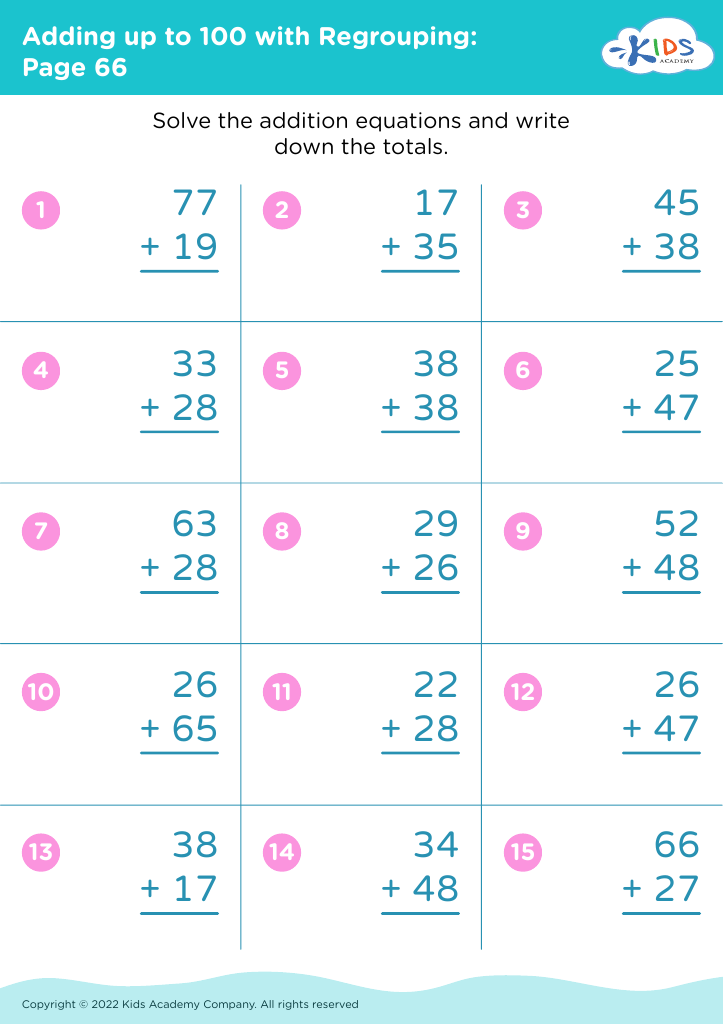Develop inference skills Addition Worksheets for Ages 3-7
3 filtered results
-
From - To
Our "Develop Inference Skills Addition Worksheets" are specially designed for children ages 3-7 to boost both mathematical and cognitive skills. Through engaging activities and colorful illustrations, young learners will practice addition while honing their ability to make inferences. These worksheets provide a dual approach to education, merging early math learning with critical thinking skills. Perfect for home or classroom settings, this resource makes learning fun, effective, and impactful. Start building a strong foundation in math and reasoning with our expertly crafted worksheets tailored to the developmental needs of young children.
Developing inference skills in children aged 3-7 is crucial because it lays the foundation for critical thinking and comprehension abilities that they will rely on throughout their lives. Inference allows children to read between the lines, understand context, and make educated guesses based on the information they have. This is a key element in effective communication and literacy.
For parents and teachers, fostering these skills means actively contributing to a child's cognitive development. Children who can infer are better at understanding stories, following instructions, and solving problems. When a child learns to make inferences, they become more adept at connecting past experiences with new information, thereby enhancing their learning process.
During early childhood, adding inference skills exercises can be both educational and enjoyable. Activities such as reading stories and asking predictive questions help children practice deducing outcomes and reasons behind characters’ actions or events. Additionally, simple games that involve guesswork foster this skill in an interactive way.
Overall, investing effort in developing inference skills helps children become more independent thinkers, improves their school performance, and equips them with abilities essential for daily life. For these reasons, parents and teachers should prioritize honing these skills from a young age.






.jpg)











